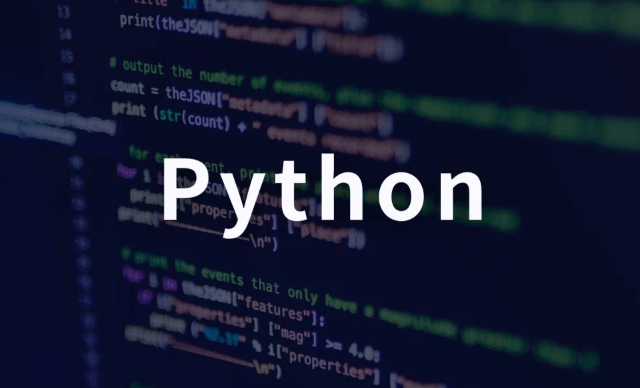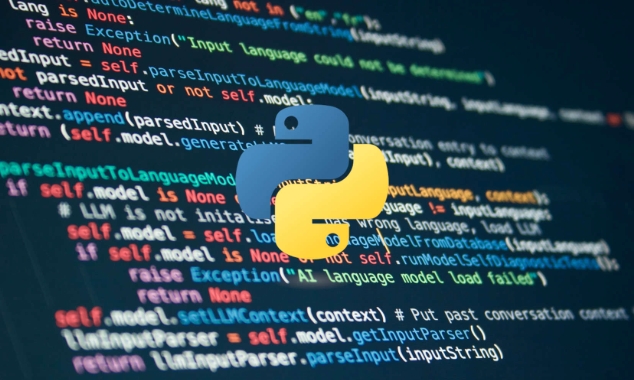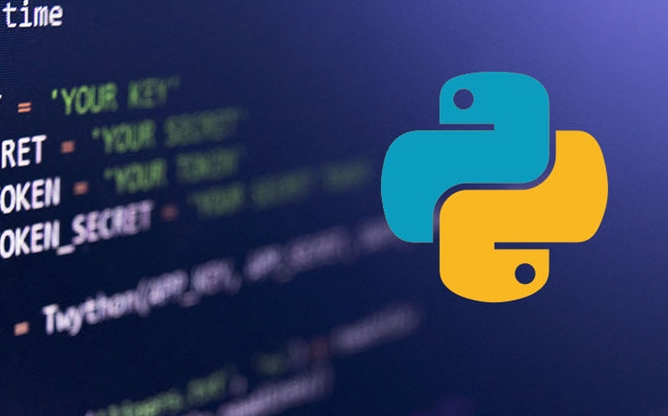Weak references do not increase the object reference count, allowing objects to be garbage collected, while strong references will prevent recycling; 2. Use weakref.ref to create weak references. When the object is destroyed, weak references return None; 3. WeakKeyDictionary takes the object as the key and does not prevent its recycling, which is suitable for caching; 4. WeakSet can be used in observer mode to avoid circular references and memory leaks caused by strong references; 5. Weak references are only suitable for hashable objects, and common tools include weakref.ref, WeakKeyDictionary, WeakValueDictionary and WeakSet; Weak references are an effective mechanism for managing memory and avoiding circular references, and are widely used in cache, callbacks and observer modes.

Weak reference in Python is a reference method that does not increase the object reference count. It allows you to refer to an object, but does not prevent the object from being garbage collected. This is very useful when caching, observer pattern, or avoiding circular references.

Here is a simple weak reference example to help you understand its basic usage.
? What is a weak quote?
Normal references (strong references) will prevent objects from being recycled:

a = [1, 2, 3] b = a # Strong reference, a will not be recycled
And weak references do not prevent recycling:
import weakref a = [1, 2, 3] w = weakref.ref(a) # Create weak reference print(w()) # Output: [1, 2, 3], get the object del a through w() # Delete the original reference print(w()) # Output: None, the object has been recycled
? Practical example: Use weak reference to implement cache (WeakKeyDictionary)
Suppose you have a class that wants to cache data related to certain instances, but you don't want the cache to prevent the instance from being destroyed.

import weakref
# Simulate a cache: the key is an object instance, and the value is some additional data cache = weakref.WeakKeyDictionary()
class Person:
def __init__(self, name):
self.name = name
# Put some data into the cache cache[self] = f"Profile data for {name}"
def __repr__(self):
return f"Person({self.name})"
def __del__(self):
print(f"{self.name} was destroyed")
# Use example p = Person("Alice")
print("Data in cache:", cache[p])
p = None # Delete the reference, the object can be recycled# At this time, Person("Alice") is destroyed, and the corresponding entries in the cache are automatically cleared print("Cache size:", len(cache)) # Output: 0Output:
Data in cache: Profile data for Alice Alice was destroyed cache size: 0
? Note: When p is set to None , Person instance is destroyed, WeakKeyDictionary automatically removes the key, which will not cause memory leakage.
? Another example: Avoid circular references in observer mode
import weakref
class Subject:
def __init__(self):
# Use weak references to store observers and avoid circular references to self._observers = weakref.WeakSet()
def add_observer(self, observer):
self._observers.add(observer)
def notify(self, msg):
for observer in self._observers:
observer.update(msg)
class Observer:
def __init__(self, name):
self.name = name
def update(self, msg):
print(f"{self.name} message received: {msg}")
def __del__(self):
print(f"{self.name} is recycled")
# Test subject = Subject()
obs1 = Observer("Xiao Ming")
obs2 = Observer("Little Red")
subject.add_observer(obs1)
subject.add_observer(obs2)
subject.notify("System updated")
del obs2 # delete obs2
subject.notify("Another message") # Xiaohong will not receive it againOutput:
Xiao Ming received the message: The system has updated Xiao Hong received the message: The system has updated Xiao Hong was recycled Xiao Ming received the message: Another message
? WeakSet is used here. When obs2 is deleted, it will be automatically removed from _observers without manual cleaning.
?? Notes
- Weak references can only be used for hashable objects (such as class instances), and cannot be used for non-hashable types such as
listanddict. - If the object has no other strong references, the weak reference returns
None. - Common tools:
-
weakref.ref(obj): Creates a weak reference to an object -
weakref.WeakKeyDictionary(): The key is a weak reference -
weakref.WeakValueDictionary(): The value is a weak reference -
weakref.WeakSet(): The elements in the collection are weak references
-
Basically that's it. Weak references are powerful tools for managing memory and avoiding circular references, especially when implementing cache, callback, observer and other modes.
The above is the detailed content of python weak reference example. For more information, please follow other related articles on the PHP Chinese website!

Hot AI Tools

Undress AI Tool
Undress images for free

Undresser.AI Undress
AI-powered app for creating realistic nude photos

AI Clothes Remover
Online AI tool for removing clothes from photos.

Clothoff.io
AI clothes remover

Video Face Swap
Swap faces in any video effortlessly with our completely free AI face swap tool!

Hot Article

Hot Tools

Notepad++7.3.1
Easy-to-use and free code editor

SublimeText3 Chinese version
Chinese version, very easy to use

Zend Studio 13.0.1
Powerful PHP integrated development environment

Dreamweaver CS6
Visual web development tools

SublimeText3 Mac version
God-level code editing software (SublimeText3)

Hot Topics
 A Developer's Guide to Maven for Java Project Management
Jul 30, 2025 am 02:41 AM
A Developer's Guide to Maven for Java Project Management
Jul 30, 2025 am 02:41 AM
Maven is a standard tool for Java project management and construction. The answer lies in the fact that it uses pom.xml to standardize project structure, dependency management, construction lifecycle automation and plug-in extensions; 1. Use pom.xml to define groupId, artifactId, version and dependencies; 2. Master core commands such as mvnclean, compile, test, package, install and deploy; 3. Use dependencyManagement and exclusions to manage dependency versions and conflicts; 4. Organize large applications through multi-module project structure and are managed uniformly by the parent POM; 5.
 Building RESTful APIs in Java with Jakarta EE
Jul 30, 2025 am 03:05 AM
Building RESTful APIs in Java with Jakarta EE
Jul 30, 2025 am 03:05 AM
SetupaMaven/GradleprojectwithJAX-RSdependencieslikeJersey;2.CreateaRESTresourceusingannotationssuchas@Pathand@GET;3.ConfiguretheapplicationviaApplicationsubclassorweb.xml;4.AddJacksonforJSONbindingbyincludingjersey-media-json-jackson;5.DeploytoaJakar
 css dark mode toggle example
Jul 30, 2025 am 05:28 AM
css dark mode toggle example
Jul 30, 2025 am 05:28 AM
First, use JavaScript to obtain the user system preferences and locally stored theme settings, and initialize the page theme; 1. The HTML structure contains a button to trigger topic switching; 2. CSS uses: root to define bright theme variables, .dark-mode class defines dark theme variables, and applies these variables through var(); 3. JavaScript detects prefers-color-scheme and reads localStorage to determine the initial theme; 4. Switch the dark-mode class on the html element when clicking the button, and saves the current state to localStorage; 5. All color changes are accompanied by 0.3 seconds transition animation to enhance the user
 python property decorator example
Jul 30, 2025 am 02:17 AM
python property decorator example
Jul 30, 2025 am 02:17 AM
@property decorator is used to convert methods into properties to implement the reading, setting and deletion control of properties. 1. Basic usage: define read-only attributes through @property, such as area calculated based on radius and accessed directly; 2. Advanced usage: use @name.setter and @name.deleter to implement attribute assignment verification and deletion operations; 3. Practical application: perform data verification in setters, such as BankAccount to ensure that the balance is not negative; 4. Naming specification: internal variables are prefixed, property method names are consistent with attributes, and unified access control is used to improve code security and maintainability.
 How to use Java MessageDigest for hashing (MD5, SHA-256)?
Jul 30, 2025 am 02:58 AM
How to use Java MessageDigest for hashing (MD5, SHA-256)?
Jul 30, 2025 am 02:58 AM
To generate hash values using Java, it can be implemented through the MessageDigest class. 1. Get an instance of the specified algorithm, such as MD5 or SHA-256; 2. Call the .update() method to pass in the data to be encrypted; 3. Call the .digest() method to obtain a hash byte array; 4. Convert the byte array into a hexadecimal string for reading; for inputs such as large files, read in chunks and call .update() multiple times; it is recommended to use SHA-256 instead of MD5 or SHA-1 to ensure security.
 css dropdown menu example
Jul 30, 2025 am 05:36 AM
css dropdown menu example
Jul 30, 2025 am 05:36 AM
Yes, a common CSS drop-down menu can be implemented through pure HTML and CSS without JavaScript. 1. Use nested ul and li to build a menu structure; 2. Use the:hover pseudo-class to control the display and hiding of pull-down content; 3. Set position:relative for parent li, and the submenu is positioned using position:absolute; 4. The submenu defaults to display:none, which becomes display:block when hovered; 5. Multi-level pull-down can be achieved through nesting, combined with transition, and add fade-in animations, and adapted to mobile terminals with media queries. The entire solution is simple and does not require JavaScript support, which is suitable for large
 python parse date string example
Jul 30, 2025 am 03:32 AM
python parse date string example
Jul 30, 2025 am 03:32 AM
Use datetime.strptime() to convert date strings into datetime object. 1. Basic usage: parse "2023-10-05" as datetime object through "%Y-%m-%d"; 2. Supports multiple formats such as "%m/%d/%Y" to parse American dates, "%d/%m/%Y" to parse British dates, "%b%d,%Y%I:%M%p" to parse time with AM/PM; 3. Use dateutil.parser.parse() to automatically infer unknown formats; 4. Use .d
 python get mac address example
Jul 30, 2025 am 02:59 AM
python get mac address example
Jul 30, 2025 am 02:59 AM
Use the uuid module to obtain the MAC address of the first network card of the machine across the platform, without the need for a third-party library, and convert it into a standard format through uuid.getnode(); 2. Use subprocess to call system commands such as ipconfig or ifconfig, and combine it with regular extraction of all network card MAC addresses, which is suitable for scenarios where multiple network card information needs to be obtained; 3. Use the third-party library getmac, call get_mac_address() after installation to obtain the MAC, which supports query by interface or IP, but requires additional dependencies; in summary, if no external library is needed, the uuid method is recommended. If you need to flexibly obtain multi-network card information, you can use the subprocess solution to allow you to install the dependency getma.






